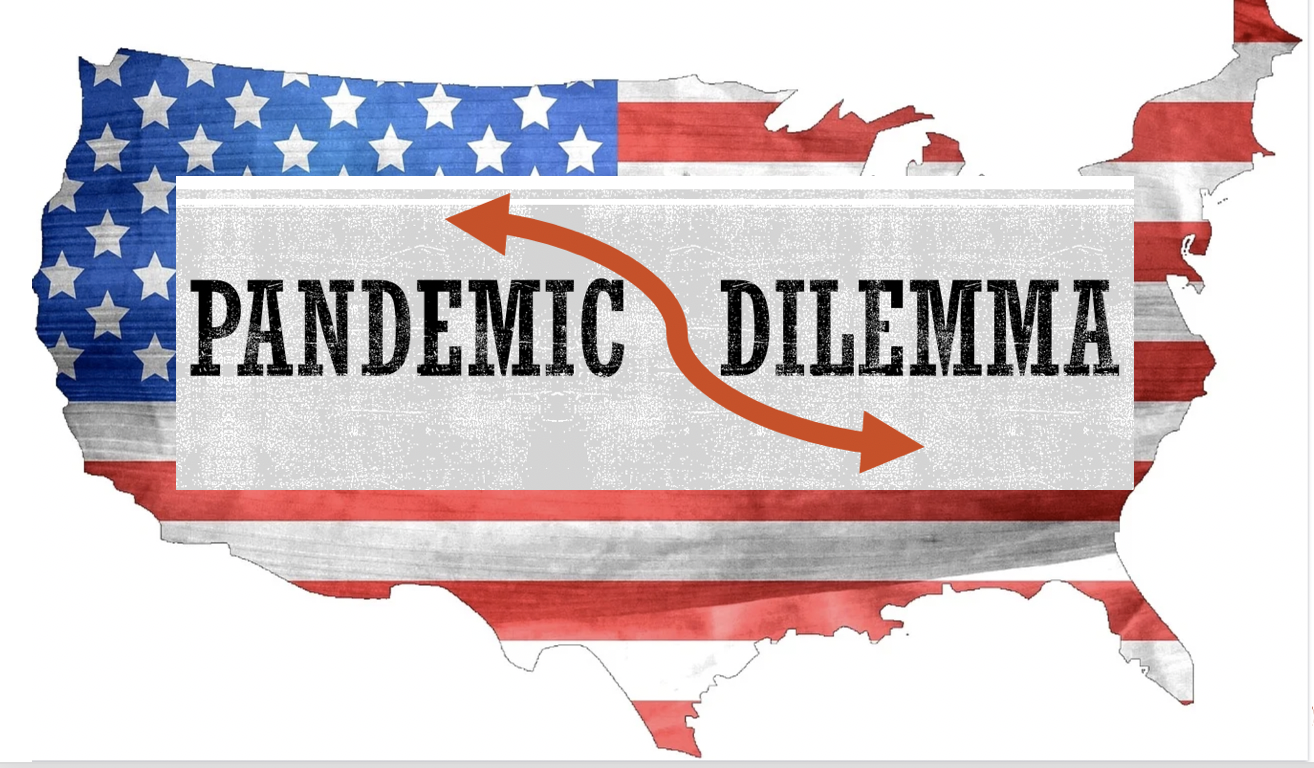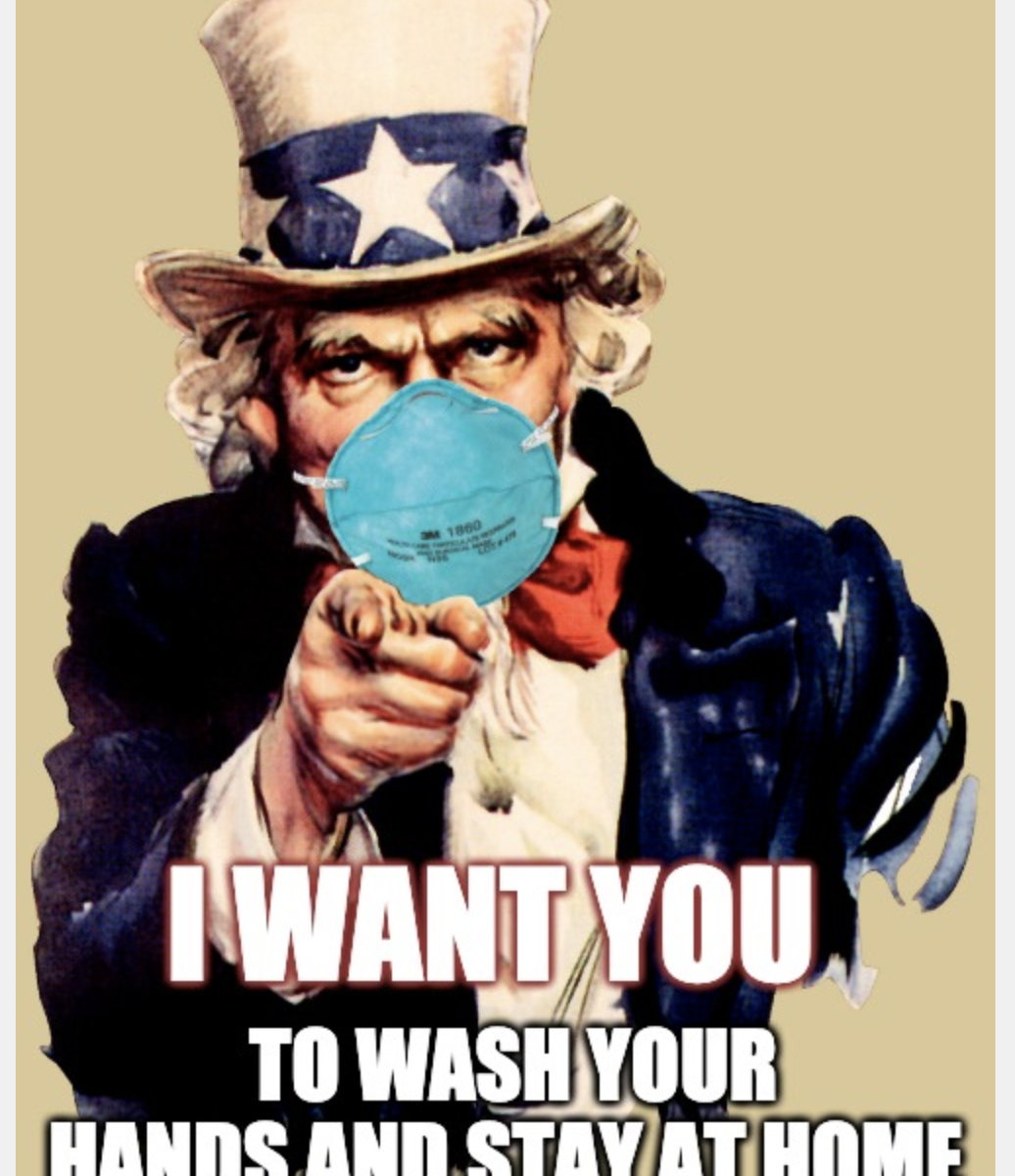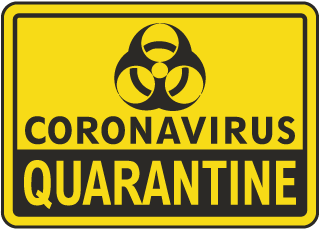We are witnessing a “pandemic dilemma” similar to the classic “prisoner’s dilemma.” A growing number of people want to be “liberated” from stay-at-home orders, including apparently, President Trump. The desire to end coronavirus restrictions is reasonable. People need to get back to work and get on with their lives.
But if we end stay-at-home restrictions too soon, the pandemic will continue and we’ll need more restrictions. Cooperation is necessary, along with a long-term perspective. Selfish action in the short term will prevent us from getting what we desire in the long run.
The Problem of an Early Win
Pandemic restrictions have apparently worked. The curve is “flattening.” Although the number of deaths is appalling, this has fallen short of the most-dire predictions. That’s good news. But the effectiveness of stay-at-home orders makes it seem that they are not necessary.
It is tempting to declare a win too early. The permanent solution involves vaccines and effective treatments. The stay-at-home strategy only slows the spread of the disease. If everyone stays home, the threat decreases. It will then seem that there is no need to stay home. But to re-open things too soon will increase the pandemic risk. That would make it necessary to extend stay-at-home orders.
Short-term thinking will lead to long-term problems.
Cheating can be Contagious
As the threat dissipates, there will be more cheaters and resisters. The irony of this is that cheating and resisting may prolong the pandemic.
The longer this goes on, the more likely a further negative spiral. As patience wears thin more people will be tempted to cheat and protest. But a resurgent pandemic would lead to an extended need to stay at home.
As frustration increases, cooperation decreases. If you are staying at home, you will view defectors with resentment—but also maybe a bit of envy. Resentment causes distrust and polarization. The resisters view those staying at home as mindless sheep. The stay-at-homers view the resisters as ignorant fools. Cooperation becomes difficult.
The Problem of Polarization
Polarization in the United States was already a problem. This crisis has amplified it. Some trust science. Others do not. Some think the president’s incompetence has made the crisis worse. Others think that this is a “deep state” campaign to bring Trump down.
Our divisions will likely intensify as the economic and political consequences of the pandemic unfolds. When distrusts grow, there is a tendency to focus on short-term self-interest, while blaming others. This makes cooperative action more unlikely, which causes a further negative cycle.
Hopelessness exacerbates distrust and makes it difficult to focus on long-term cooperation. These negative feedback loops make long-term success seem farther away. At some point, people begin to shrug and say “what the hell, might as well join the cheaters.” When the Titanic is sinking and there is no hope for rescue, you might as well enjoy the ride (a point I’ve made in more detail elsewhere).
If that happens, we really are sunk.
The Solution
Philosophers have long pondered the problem of cooperation. One source is Hegel. I won’t bore you with the details. But in Hegel’s “master-slave dialectic,” when rival parties struggle for recognition, they end up failing to get what they want.
The solution is a more robust sense of community. This is similar to the solution of the classic prisoner’s dilemma, where two people struggle to choose wisely when they lack information and trust. The solution is solidarity and trust, along with a shared source of information.
Hope is also essential. We need a reason to hope that things will improve when we work together. The good news is that there is a reason for hope: cooperative action has slowed the pandemic.
Community, truth, and hope are cherished goods of human life. Without them, we are thrown back into a chaotic world, where narrowly focused self-interest prevents us from cooperating and actually getting what we want. Philosophers have made it clear what the solution is. But building community is up to us. We, the people, must choose to cooperate, seek truth, and find reasons to hope that in the long run solidarity pays off.







